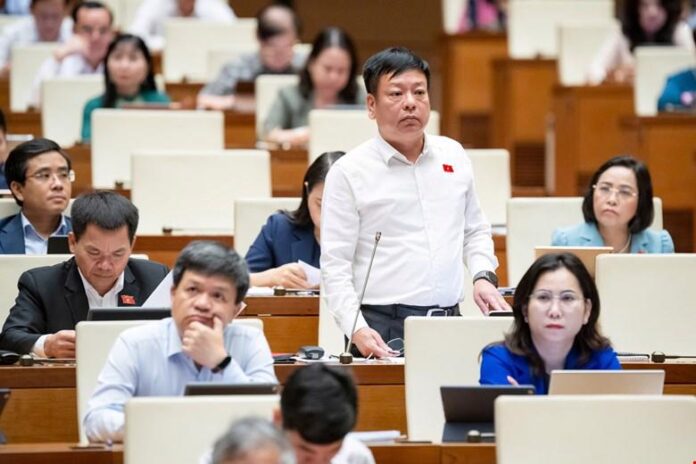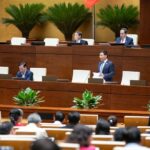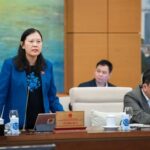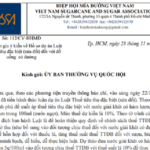On May 9, the National Assembly continued its 9th session, discussing the Law on Special Consumption Tax (amended) in the hall. Many delegates shared their opinions on the objects of special consumption tax, including gasoline.
GASOLINE IS THE ONLY COMMODITY SUBJECT TO BOTH SPECIAL CONSUMPTION TAX AND ENVIRONMENTAL PROTECTION TAX
Discussing this issue, Delegate Nguyen Truong Giang from Dak Nong suggested removing gasoline from the list of items subject to special consumption tax to align with the nature of this tax, which is levied on certain goods and services considered luxurious to regulate their production, import, and social consumption.
Delegate Giang analyzed, “Gasoline is essential in people’s lives and is an input for many industries. Moreover, gasoline is already subject to environmental protection tax. Therefore, the explanation provided by the drafting agency about imposing a special consumption tax on gasoline for environmental protection is unconvincing.”
Hence, the delegate proposed that “if there is a need to increase environmental protection tax on gasoline, the absolute value of the tax should be adjusted upwards, and gasoline should not be included in the scope of special consumption tax to stay true to its nature.”
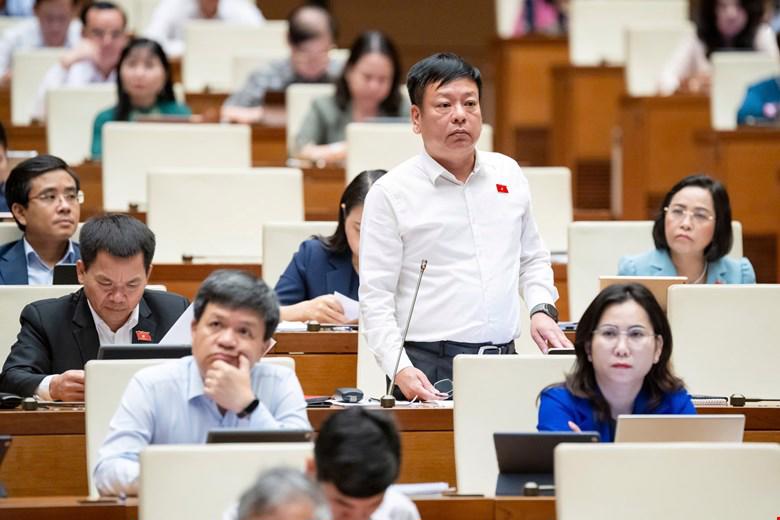
Concurring with the opinion that gasoline should be taxed, Delegate Ha Sy Dong from Quang Tri raised the question of which type of tax should be applied.
According to the delegate, currently, gasoline is the only commodity subject to both special consumption tax and environmental protection tax. Even similar commodities like oil, used as vehicle fuel, are only subject to environmental protection tax and not special consumption tax.
These two taxes are very similar in nature, as they are both levied on commodities to restrict consumption and aim to modify the behavior of businesses and consumers. They differ in their purpose: the environmental protection tax is imposed on goods that cause pollution or adverse effects on the environment, while the special consumption tax has multiple objectives, including discouraging the consumption of certain goods for social ethical reasons, preventing wastefulness and extravagance, and addressing health and accident risks.
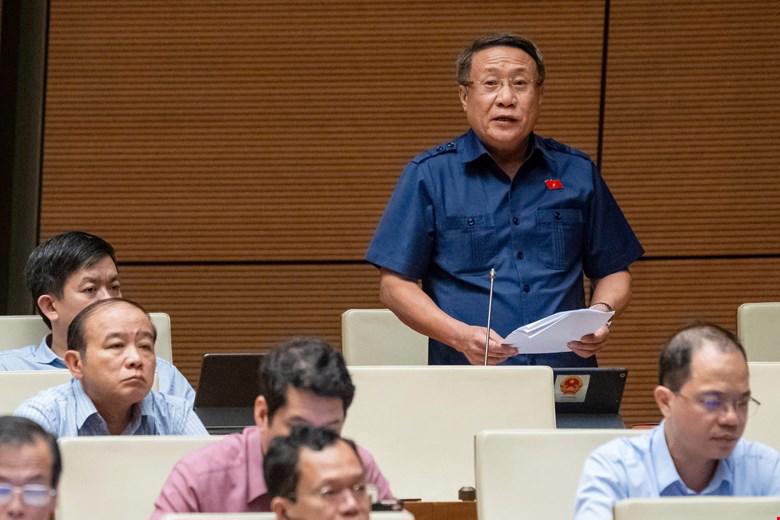
“This shows that if the goal is to limit negative impacts on the environment, the tax should fall under environmental protection tax,” the delegate stated.
The delegate recalled the explanatory documents from 2008 when the Law on Special Consumption Tax was drafted to understand why gasoline was included. However, at that time, Vietnam did not have the Law on Environmental Protection Tax. The rationale provided was that burning gasoline generates emissions that pollute the environment. Thus, the same rationale was used for imposing two different taxes on gasoline.
Therefore, the delegate from Quang Tri suggested removing the special consumption tax on gasoline and transferring it entirely to environmental protection tax.
TAX IMPOSITION MAY INCREASE COSTS AND INFLATIONARY PRESSURE
Sharing the same view, Delegate Nguyen Huu Thong from Binh Thuan acknowledged that including gasoline in the scope of special consumption tax has some positive effects, such as encouraging the use of clean energy, reducing greenhouse gas emissions, and regulating gasoline consumption. Gasoline is essential but has a significant environmental impact, and taxing it contributes to increasing state budget revenue.
However, the delegate pointed out that since gasoline is a critical input for production, transportation, and daily life, taxing it could drive up costs, affecting low-income earners and causing inflationary pressure. Moreover, gasoline is already subject to multiple taxes, and failing to assess them comprehensively may lead to policy contradictions.
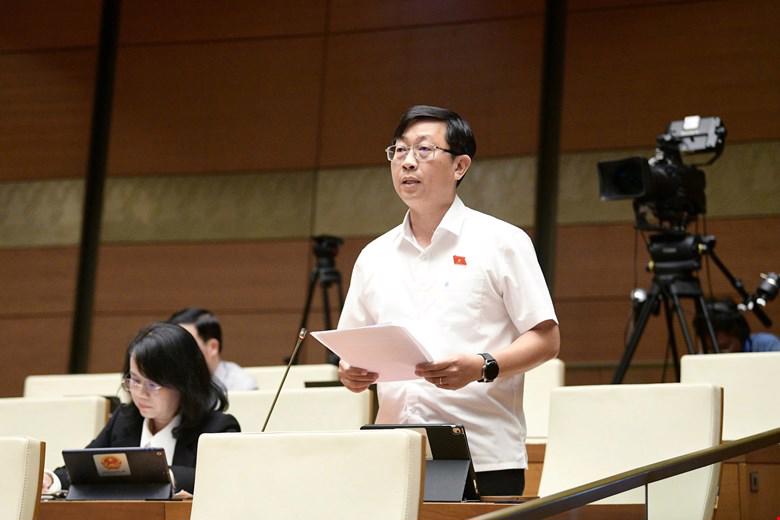
Therefore, the delegate from Binh Thuan proposed excluding gasoline from the objects of special consumption tax. “If gasoline must remain taxable, a reasonable roadmap is necessary to avoid sudden tax increases, and corresponding adjustments should be made to other taxes, such as environmental protection tax and value-added tax, to prevent a double burden on people and businesses,” he added.
Sharing a similar concern about taxation on gasoline, electric vehicles, and promoting scientific and technological development, innovation, and clean energy, Delegate Tran Van Khai from Ha Nam clarified that imposing a 10% special consumption tax on gasoline and diesel is unreasonable as these are essential commodities, and such a tax would burden citizens and businesses.
According to the delegate, this policy needs to be harmonized. The state can maintain revenue from environmental taxes, promote green growth, provide people with a cleaner environment, and stabilize fuel costs through new technologies. Simultaneously, businesses, especially those in transportation technology and energy, will be motivated to invest and innovate to lead the market in clean energy.
Delegate Khai recommended removing gasoline and diesel from the objects of special consumption tax and amending Article 2 to focus on environmental taxes and encourage the use of clean energy alternatives. “This will reduce costs for people and businesses while enabling the state to achieve its goals of reducing gasoline and diesel consumption, promoting clean energy, and balancing the interests of all parties,” he emphasized.
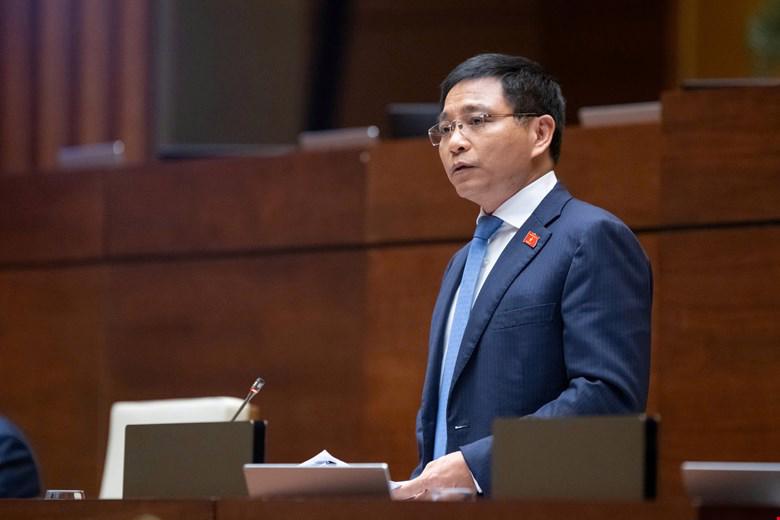
Responding to the delegates’ concerns, Minister of Finance Nguyen Van Thang stated that taxing gasoline has been in practice since 1998. Moreover, at COP26, the Prime Minister committed to net-zero emissions by 2050.
With the environmental commitment, gasoline cannot be excluded from special consumption tax. Some delegates mentioned that gasoline is currently subject to two types of levies: a tax and a fee. In most large and developed countries worldwide, both taxes and fees are imposed on gasoline, although they may have different names. The special consumption tax aims to regulate consumption behavior and increase state revenue, while the environmental protection fee creates funds for environmental projects.
The application of both tax and fee is consistent with Vietnam’s commitment at COP26 and the goal of net-zero emissions by 2050. Currently, the combined amount of tax and fee in Vietnam is still significantly lower than in many other countries, especially compared to European nations (which levy taxes and fees amounting to 17,000-18,000 VND per liter of gasoline).
The Unavoidable Excise Tax on Gasoline
“According to the Minister of Finance, continuously encouraging and exempting gasoline from taxation will make it very challenging to alter behavioral patterns.”

